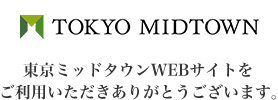Dappi
Campus
Exhibition
”Dappi” for post University
University, a core institution of higher education, is under pressure of transformation. - Adaptation of the demographic shifts, urgent needs to teach digital technologies - these are just a tip of the iceberg. How can universities change for the future? Campus Exhibition introduces unique approaches from 5 different universities.
- Date and time
- 11:00 to 21:00 on Thursday,
February 20~ Monday, February 24 - Place
- Tokyo Midtown Design Hub (5th floor of Midtown Tower)
University of the future
What will university education be in the future?
Educators and students rethink the meaning of education, and develop virtual course syllabus.
University NOW
Let's take a glimpse of current university projects that are bringing about transformation.
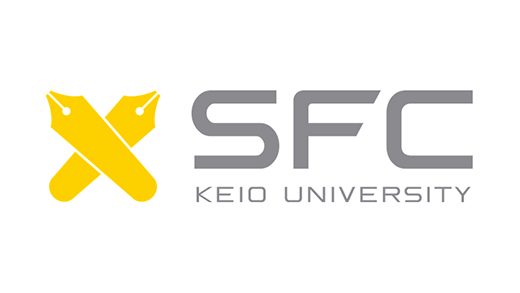
Keio University SFC

SFC at Keio University offers future-oriented education and research, in interdisciplinary approach covering the latest science, technology, art and design. Students can jump right into a specialized field from their first semester. Cross-disciplinary collaborations are often driven by students, well-represented in this exhibition. Joint research project from 3D printing - Digital fabrication lab, and Drone/Security lab.
http://fab.sfc.keio.ac.jp/ https://lab.keioac.jp/Hiroya Tanaka Laboratory + Keiji Takeda Laboratory (Hiroya Tanaka, Keiji Takeda, Takuji Tokiwa)
- Substitute-Flying Campus by SFC (Yuki Matsumoto, Fumiaki Mizuno, Chiaki Katsunuma, Naoya Tashiro)

Art & Media Course, Department of Information Design, Tama Art University

Our media lab researches all subjects surround us from outer space to the deep sea, from biological cells to fashion, food and housing, and creates artworks. We are working on a wide range of hybrid artworks such as media art, bio art, sound art, digital photography, video and games.
Project "Inverse University" challenges meaning of education, by questioning what-to-teach/to-be-taught in university.
Media Lab (Akihiro Kubota, Akihiko Taniguchi)
- Tama Reversible Art University Department of Inversion(shujiro kubota,maho kono,aki sakata,masaki shibata,sawa sugiyama,ryohei takahashi,kotomi taniguchi,nonoka horii,maya masuda,tamaki yanagida,shu yonezawa)
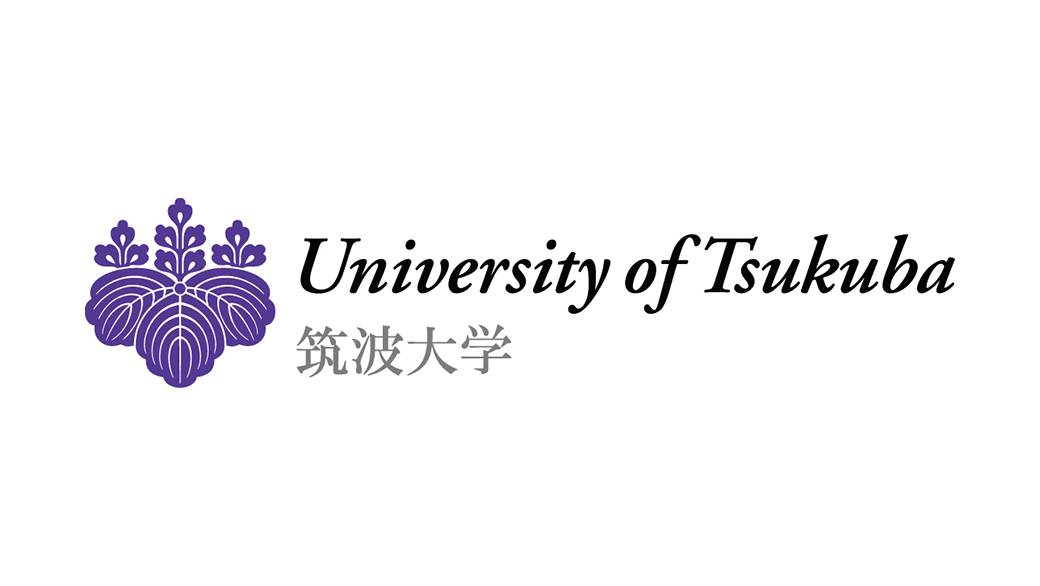
University of Tsukuba

University of Tsukuba has been leading media art scene for 30 years. Many famous media artists graduated from this school. University of Tsukuba also has school of Engineering where emerging interactive technologies has been developed. These technologies are merging with art. The Research Unit on Art and Technology aims to form a group of researchers from art and technology fields.
http://intron.kz.tsukuba.ac.jp/tech-art_researunit/index.htmlResearch Unit on Art and Technology (Hiroo Iwata, Toshiaki Uchiyama, Fumiaki Murakami)
- COLOR BLASTER Series (Ryota Sakurai, Rina Katsube)
- KOROGAERU (Ryo Sejiri, Ryota Sakurai)
- Robotbot (Miyako Kashimura)
- ON Cook (Kohei Minami)
- Janus Town (Toru Tanikawa)
- Review-kun (Future Store Design Laboratory, Rakuten, Inc. and University of Tsukuba)
- Walkaholic 3 (Sugimoto Minatsu)
- In Perspective (Hiroto Toyama)
- AB/Sence (Teruki Okamoto)
- Shady Side (Miou Hiruma)

Musashino Art University

Visual language and visual media design practice invariably produce new forms of expression and modes of communication and are profoundly connected with the formation of our society. This being the case, what is now required is highly skilled and aesthetically-minded designers who are capable of responding with intellect, energy and reconstructing information from a social viewpoint. Nurture leaders who will rise to the challenges of the society of the future and the door to a new era of visual communication will open. This is the objective of the Department of Visual Communication Design.
https://vcd.musabi.ac.jp/Department of Visual Communication Design (Masahiko Furukata, Akinori Goto)
- CHA! (Makoto Omori)
- Composing breath (Yukiko Uno)
- Music Composition (Kasumi Takeda)
- 21 Scenic Patterns of Water (Midori Kitabayashi)
- Morphe (Taku Hamamoto)
- PING PONG PARTY NIGHT (Saya Kimura)
- Color catch horn (Ren Takahashi)
- mogi Light (Nodoka Kadowaki)
- YAKIGOTE BANKO (Mizuki Honma)
- My Watchdog (Rio Ueda)
- Hatopopo - Pigeon Chase - (Saori Mitani)
- sekitori (Ayame Matsumoto)
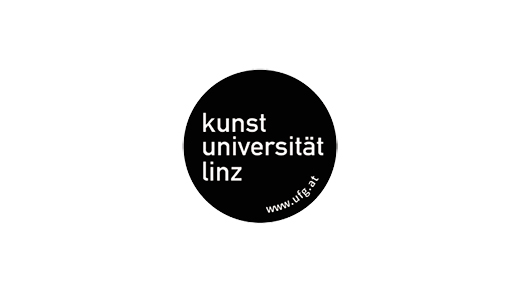
University of Art and Design Linz

Fashion & Technology program is a bachelor and master program developing visions for sustainable, inclusive and emancipated fashion design at University of Art and Design Linz / Austria.
"In the Lab" takes a look behind the scenes of the future of fashion.
A series of videos make innovative processes of creation visible, not just the finished design solution.
Projects range from 3dimensional fashion sculptures spun on mechatronic device, biomorph lace, microorganisms as the farmers of the future to the emergence and decay of digital bodies.
Fashion & Technology (Ute Ploier)
- Re_sampling (Miriam Eichinger)
- Design for a body (Simon Hochleitner)
- Connection (Aleksandar Murkovic)
- Yarn (Belinda Winkler)
-
Dappi Workshop「Public Review for Campus Exhibition」
Saturday, February 22; 11:00 to 12:30 (open from 10:40)
Tokyo Midtown Design Hub International Design Liaison Center (5th floor of Midtown Tower)
*No reservation required.
*If there are too many participants, you may not be able to enter.Members of Ars Electronica will exchange opinions about the projects in the Campus Exhibition with students who participated in, and deepen the dialogue over how the society should shed its skin for the future. Anyone can participate.
-
Dappi Talk「Post University」
Saturday, February 22; 14:00-15:30 (open from 13:40)
Tokyo Midtown Design Hub International Design Liaison Center (5th floor of Midtown Tower)
*Reservation required.
*The English speeches will be interpreted consecutively into Japanese.Rapid progress of technologies comes together with changes in Science education and research. Meanwhile, in the field of studies, so called Arts, Humanities, and Social Sciences that is exploring human nature and society, educational reform to respond to technological evolution has been left behind.
In this seminar, experts from Japanese and Austrian art universities will address the issue, and discuss how Art and Design studies can contribute to the future of university education.SPEAKER
-
Hiroo IwataProfessor, Engineering, Information and Systems, University of Tsukuba
-
Akihiro KubotaProfessor, Faculty of Art and Design / Department of Information Design, Tama Art University
-
Masahiko FurukataProfessor, Faculty of Visual Commnunication Design, Musashino Art University
-
Ute PloierArtist, Researcher, Faculty of Fashion and Technology, The University of Art and Design Linz (Kunstuniversität Linz)
MODERATOR
-
Kyoko KunohArtist of Ars Electronica Futurelab
-


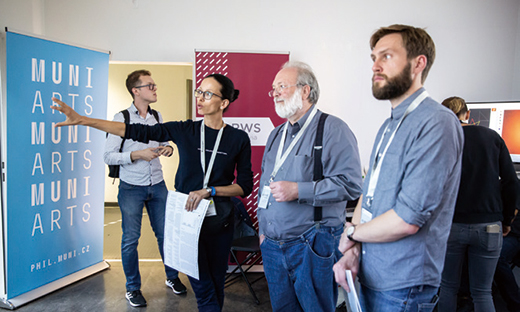 ©tom mesic
©tom mesic